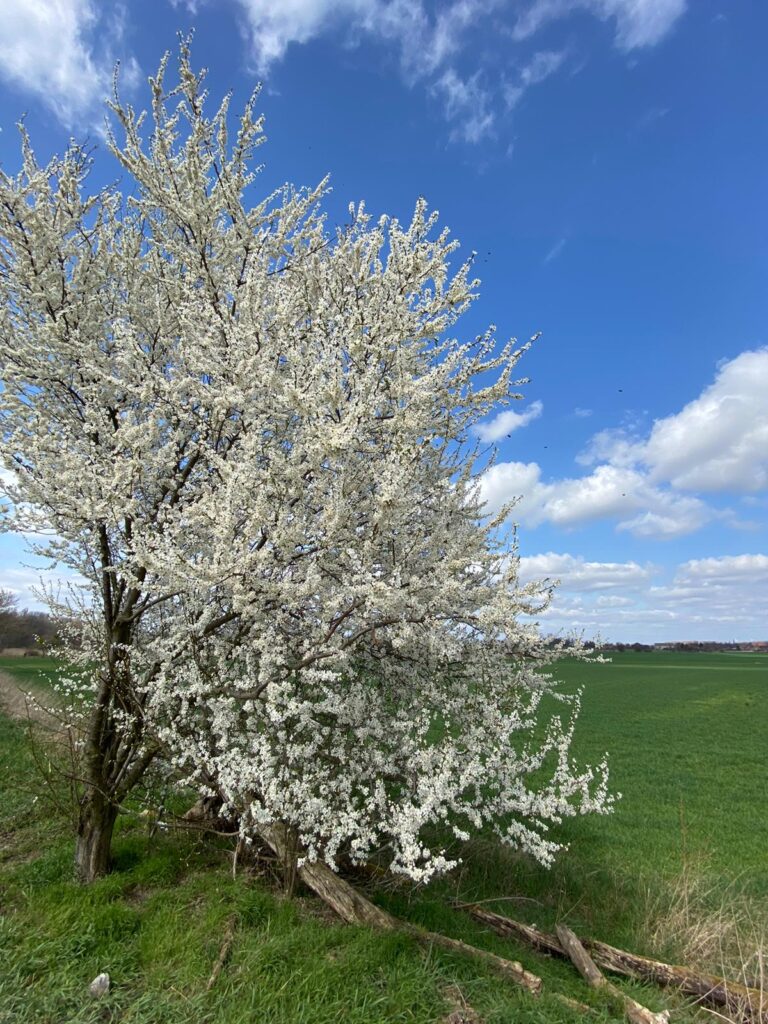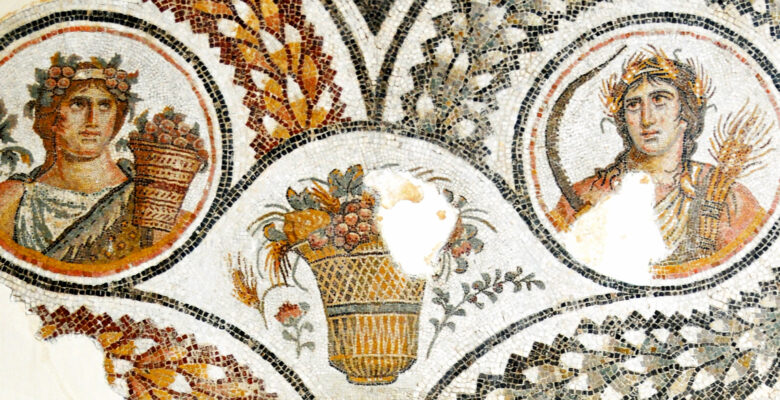Epigram of the month: The ballet of the seasons

No doubt! Spring has sprung in Vienna (and in Berlin, where I spent my Easter vacation – and where I took the photo, on the left). We – and all life around us – emerge from what felt like eternal winterly darkness, and slowly we awaken from our state of hibernation.
Yet, it is April, and, as we say in German: ‘April, April, der weiß nicht was er will’ (roughly translatable as: ‘April, April: it brings surprises at its will’). The weather is all over the place, and on many days it would seem as though someone tried to squeeze most, or even all, all, of the four seasons into the smallest possible number of hours.
Highs of summery sunshine with temperatures in the 20s (Celsius, not Fahrenheit!) are followed by lows of wintery snowfall and hail with temperatures in what, again, feels like the 20s (except that this time it’s actually Fahrenheit, not Celsius).
And yet: no doubts! Spring has arrived, and with it have come life and hope and all the beautiful sensations of light, colour, fragrance, and taste.
The three seasons that lie ahead of us – spring, summer, autumn – feel like a genuine blessing right now, even under those remarkable conditions that we currently find imposed upon ourselves. They are the seasons that yield, produce, and give us what we need – not just for our happiness, but for our very lives. They are the seaons that do not only help us, but make it possible for us, to endure and survive the winter that will come, inevitably, in this eternal cycle.
This has been beautifully expressed in a little poem on a funerary monument from second century A. D. Sassina (Sarsina), in Umbria (CIL XI 6565 = CLE 439; EDR 171790; images are available at the EDCS following this link):
D(is) M(anibus)
Marcanae
C(ai) f(iliae) Verae.
T(itus) Caesius
Lysimachus
coniugi sanctissimae
et sibi vivos posuit.
Ver tibi contribuat sua muner[a]
florea grata et tibi grata
comis nutet aestiva voluptas.
reddat et autumnus Bacchi
tibi munera semper ac leve
hiberni tempus tellure dicetur.
To the Spirits of the Departed of Marcana Vera, daughter of Gaius. Titus Caesius Lysimachus had this placed for his most saintly wife and himself while still alive.
May spring bestow its delightful floreal gifts upon you, and may summerly pleasure with its foliage make nod what delights you! And may autumn always bring you Bacchus’ gifts: then the time of winter, too, in the ground, will not be called a burden.
The remarkable little composition of this poem links our human experience – and our entire existence – to the kingdom of plants and its eternal cycle of growth, proliferation, and eventual rest throughout the seasons.
Flowers bring us fresh colourful, fragrant delights in spring (ver, l. 8, in what seems like an etymologising allusion to the name of the honorand, Vera).
Shady foliage and nourishing ears of grain give us pleasure in the summer.
And we may reap what nature allowed to ripen, the gifts of Bacchus, in autumn.
Living in this natural, real, true (vera!) way will allow us to cope with a cold winter – literally, and also figuratively, in the winter of our life, when the cold soil covers ourselves just as much as it covers all plants – in temporary or, eventually, even in permanent rest.
But the year is cyclical, and winter, though not naturally generous, is not the end: it is something whose weight one can bear if one accepts and indulges in the sensuous and nourishing gifts that the other seasons bring.
There are the gifts, the munera, of spring and autumn that give us delight and that nourish and intoxicate us. In fact, spring’s and autumn’s generosity were generously emphasised by the poet: they come in the longer hexameters of the two elegiac couplets that form this poem. (When you look at the photo, you can see even further marking-up of these special seasons: these lines stick out to the left of the otherwise justified text layout.)
Summer in turn – in a first pentameter, wedged between two hexameters – provides us with shade against the heat (and nourishing food to eat, if we take comis to refer to ).
And winter?
Winter, too, like summer, is short, in a pentameter. It does not bring gifts. But, there is one other thing that sets winter apart from all other seasons in this composition: subjunctives express confident hopes and wishes for spring, summer, and autumn and their blessings. Winter, in turn, is mentioned in the future tense. Assertively. Winter will be light – if we live true, vera, to nature.
Literally and figuratively.
Though winter is the end for some, it, too, is but a transitionary phase, a season, in the eternal cycle, in nature’s eternal round dance.
It will go on like this semper, continuously, in a beautiful, important ballet of the seasons, as it was perfectly imagined by Pina Bausch (and beautifully captured by Wim Wenders in his documentary Pina).
Seasons that we may simply let pass us by – or seasons whose individual, sensuous delights we may accept, make our own, and whose ballet we may wish to join, throughout all seasons, for many, many, many seasons.
If we do, even winter will not be called a burden.
Image credits
- Header: Four Seasons mosaic from Acholla, 3rd century AD (Author: Dennis Jarvis; cropped: PK)
- Flowering tree: Image PK, April 2021.
- Video: Wim Wenders: Pina (Four Seasons)

